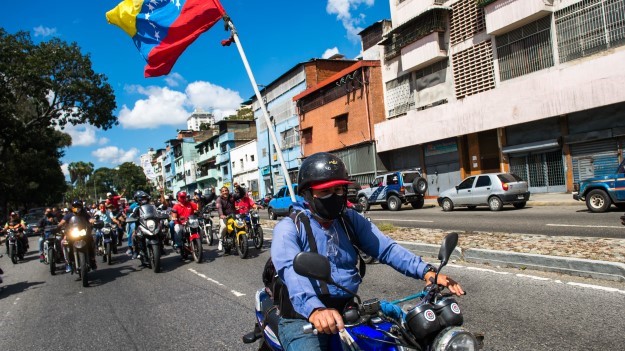
Talks could still yield worthwhile concessions from the regime, if the opposition is realistic about its goals.
By Americas Quaterly
Aug 11, 2021
For the fifth time since 2019, the regime of Nicolás Maduro and Venezuelan opposition leaders will sit at the negotiating table – this time around in Mexico starting on August 13. With the waning influence of the interim government led by Juan Guaidó and a stronger Maduro, the opposition should take this round of talks as an opportunity for a shift in strategy – if they are ready to accept that Maduro and chavismo are unlikely to disappear.
Conditions in Venezuela are simply not there for upcoming talks to provide a “big bang” moment that will dislodge chavismo from the presidential palace and immediately restore democracy. Maduro has become stronger since 2019 after surviving high external pressures while maintaining internal control. While some in the opposition have already accepted this reality, it is key that their leaders do not continue to demand the impossible, meaning ideal democratic elections and chavismo’s immediate moral and political defeat. Instead, demands in Mexico should center around humanitarian and institutional factors that can help build, brick by brick, a new inclusive political system.
Playing the long game won’t be easy, as it requires a battered opposition to accept that past strategies have failed. But to cling to the current stalemate will only render them irrelevant in the future.
Of course, Maduro and his allies still have a choice of their own to make: They can work to rebuild institutions and help Venezuela recover from its multiple crises, while recognizing opposition parties and Venezuelans’ right to choose their own representatives. Alternatively, they can maintain an authoritarian system where human rights are violated and opposition forces are banned from participating.
What Maduro could do is work with the opposition to pursue incremental institutional reforms to help design a democratic system in which chavismo has a future and can potentially win elections without the need to resort to authoritarian tactics. This could imply reforming the electoral law and judicial system, ending indefinite re-election, strengthening decentralization and, most of all, tolerating opponents. If Maduro shows credible commitment to continuous liberalizing reforms, the U.S. and European Union could restructure their economic sanction regimes.
For much of the opposition, it would be hard to grasp a future where chavismo is not extinguished entirely from Venezuelan history. Maduro only has the unconditional support of less than 10% of Venezuelans, but chavismo draws upon wider support basis among Venezuelans, reaching up to at least 30% of the population. It has also created powerful authoritarian institutions, clientelist networks, mechanisms of social control, local brokers across the country, ties to armed groups, a new, loyal economic elite, alliances with powerful, non-democratic international actors, and a polarizing, radical left-wing narrative. None of this can be dismantled overnight. These authoritarian elements will condition any new emerging regime and would automatically give chavismo some power, even outside the government.
This scenario does not mean the opposition give up its ambition of regime change or of justice for the human rights violations committed under chavismo. It does mean taking a more incremental path that, first and foremost, will require a push for more gradual liberalization, learning from other countries’ democratization routes. The opposition could push for the above-mentioned reforms that would help design a more stable and durable political system that provides guarantees for all parties. For this to work, it needs to redefine its discourse and strategies towards an often-neglected actor: the military.
…
Read More: Americas Quaterly – Venezuela’s negotiations won’t get rid of Maduro. So what’s next?
…

